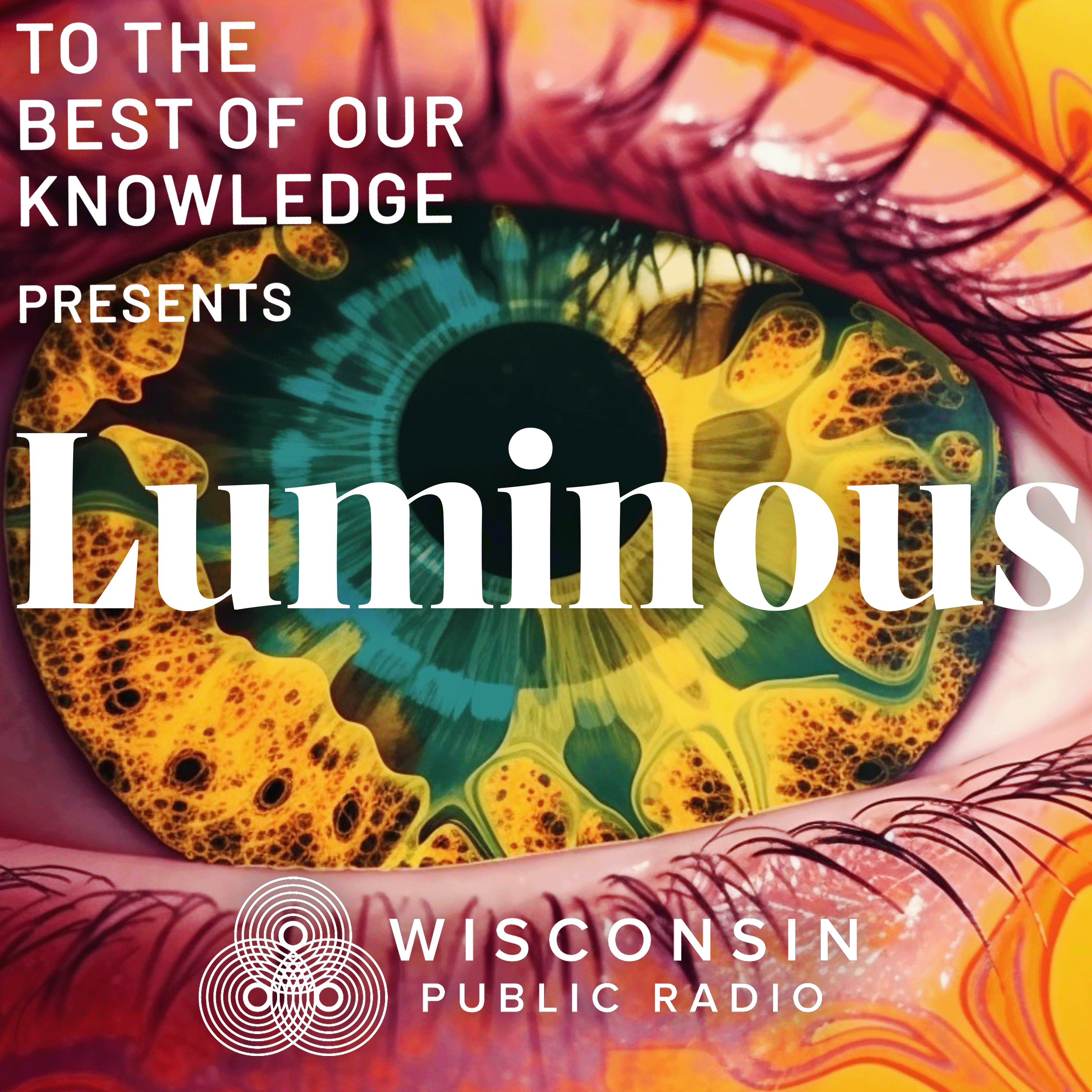In the first episode in our series about psychedelics, how can psilocybin ease our fears about dying and help us make peace with the end of our lives?More
Luminous
A Series About Psychedelics from 'To The Best Of Our Knowledge'
Are you ready for the psychedelic revolution? In the next few years, the FDA is likely to approve these mind-bending drugs for treating depression and post-traumatic stress disorder. Some states have already decriminalized psilocybin, the active ingredient in "magic" mushrooms. But for all the headlines, many questions are swirling around this psychedelic renaissance. How do we make these drugs effective, safe and accessible to the people who need the most help? And how can they be used ethically, when much of the knowledge about plant medicines comes from Indigenous cultures? Psychedelics also raise profound questions about the nature of consciousness and mystical experience. People often describe their psychedelic experiences as “more real” than everyday life. Is this just an illusion, or do these experiences tap into some deeper reality?
In “Luminous,” TTBOOK executive producer Steve Paulson explores the philosophical and cultural implications of psychedelics through conversations with scientists, healers and religious scholars. You can listen to each episode on the radio or find the series plus bonus extended conversations on Apple Podcasts, Spotify, YouTube or wherever you get your podcasts.
Luminous
Interviews from this series
Roland Griffiths helped pioneer the use of psychedelics to treat people with cancer who are scared of dying. Then he got his own terminal diagnosis. He talked with Steve Paulson in January 2023 about his personal LSD journey when he "talked" with his cancer.More
A decade ago, Lou Lukas took part in one of the first trials of psilocybin-assisted therapy. Today, she's a palliative medicine physician and an advocate for psychedelic-assisted therapy – especially for people living in fear near the end of life.More
Tony Bossis was one of the lead investigators on the 2016 study that found stress reduction in cancer patients after a single dose of psilocybin. He's fascinated by how the mystical experiences of the great religions map onto psychedelic experiences.More
Are the really big psychedelic experiences just hallucinations, or do they crack open some transpersonal dimension of consciousness? Philosopher Peter Sjöstedt-Hughes believes we need a metaphysics of psychedelics to explain these experiences.More
Could you get the same therapeutic benefits of a psychedelic drug without actually tripping? Neuroscientist David Olson wants to re-engineer psychedelic molecules to remove the trip. If successful, he might revolutionize the treatment of mental disorders.More
Psychedelic therapy has shown great promise for treating depression, but it's still unclear why exactly it works. Psychiatrist Charles Raison wants to know if it's the drug or the trip that makes psychedelics so potent. Is it biology or consciousness?More
The news about psychedelics tends to focus on clinical trials and lab research. But there’s a long tradition of underground guides working with plant medicines who refer to "unseen beings" and plants as "teachers." Psychologist Rachel Harris talked with many women elders in the psychedelic underground. She calls them "spiritual warriors."More
The story of Mazotec healer Maria Sabina is a notorious example of how psychedelic enthusiasts have exploited the knowledge of Indigenous cultures they don’t really understand.More
Sutton King wants to change the culture around psychedelic medicines by confronting historical wrongs and getting Indigenous people into key decision-making roles in the psychedelic industry. More
Pharmaceutical companies have a long history of hunting for medicinal drugs, often in Indigenous cultures. Historian Lucas Richert tells the story of how one company went bioprospecting for peyote.More
Scholar Brian Muraresku makes the controversial argument that the famous Eleusinian Mysteries were fueled by a psychedelic beer.More
In the years when psychedelic science had been shut down, Amanda Feilding helped jump-start research into altered states of mind. Today, she's in her 80s and remains active in psychedelic research with her Beckley Foundation.More
Neuroscientist Christof Koch has pioneered the scientific investigation of consciousness. Recently, he had a mind-blowing experience — both terrifying and ecstatic — with 5-MeO-DMT, also known as toad venom.More
For years, Robin Carhart-Harris dreamed of using brain scans to study people on LSD. He’s gone on to conduct pioneering research on psilocybin, and he’s formulated a theory of the "entropic brain" to explain what happens during psychedelic experiences.More
Yuria Celidwen has a wide-ranging critique of how the modern psychedelic movement is taking shape. She was the lead author of a recent article in Lancet arguing for new ethical guidelines for using psychedelics — what she calls “spirit medicine.”More
Gül Dölen is a pioneering neuroscientist who's investigating the “critical periods” of psychedelics, including studies where she's given MDMA — also known as “Molly” — to octopuses.More
David Nutt believes psychedelics will revolutionize the treatment of mental disorders. A neuropsychopharmacologist at Imperial College London, he says psychedelic therapy can help people resolve their buried traumas.More
Bill Linton is on a mission. He wants to get FDA approval for using psychedelics to treat depression and addiction. So he co-founded his own nonprofit psychedelic center, Usona Institute, to help revolutionize the treatment of mental illness.More
A psychedelic research center in Wisconsin is gearing up to manufacture enough medical-grade psilocybin to supply the world. Steve Paulson went to Usona Insitute to see where the magic's made, and got a peek inside the lab of chemist Alex Sherwood.More
About To The Best Of Our Knowledge
”To the Best of Our Knowledge” is a Peabody award-winning national public radio show that explores big ideas and beautiful questions. Deep interviews with philosophers, writers, artists, scientists, historians, and others help listeners find new sources of meaning, purpose, and wonder in daily life. Whether it’s about bees, poetry, skin, or psychedelics, every episode is an intimate, sound-rich journey into open-minded, open-hearted conversations. Warm and engaging, TTBOOK helps listeners feel less alone and more connected – to our common humanity and to the world we share. Learn more about the show here.










































